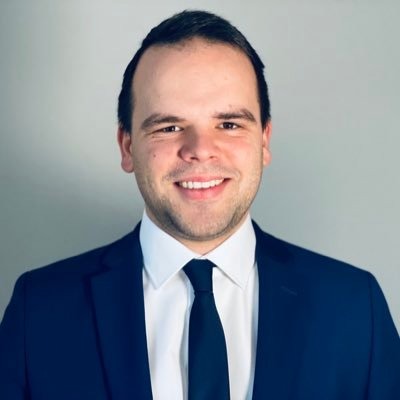In the heart of Bavaria, theologians, bishops, and pilgrims gathered from July 2–6 for the Benedict XVI Forum — a spiritual and intellectual symposium held in Altötting, Germany’s most important Marian shrine and near the birthplace of Joseph Ratzinger.
The theme of this year’s forum centered on the sacred and the universal call to holiness.
“It is about the sacred and holiness: the sacredness in Holy Scripture, the sacred in the Old and New Testaments, the sacred in human life, the truth and so on,” said Monsignor Markus Graulich, Undersecretary at the Dicastery for Legislative Texts. “It seems that the forum has established itself. There are many more participants than last time.”
Cardinal Kurt Koch, Prefect of the Dicastery for Promoting Christian Unity, emphasized the richness of Pope Benedict’s theology:
“The Benedict Forum is about discussing fundamental questions of faith. And Pope Benedict's theology is a wonderful source from which to draw and find profound answers to the questions that many believers have today. This is a precious legacy that we want to preserve.”
Participants agreed: Benedict’s voice remains relevant and urgently needed.
“His writings and teachings have something refreshing about them, and they are also timeless,” said Bishop Rudolf Voderholzer of Regensburg. “He will continue to have an impact through his theology, his writings, and his teachings. To many people, he has brought great clarity and joy in faith.”
For many young adults, Pope Benedict’s legacy offers not only clarity, but true spiritual nourishment.
“Many young people came to the Benedict Forum this year,” said Professor Ralph Weimann. “They feel drawn to it because they realize: I need this, it's good for my soul, because I also have to take care of my spirit. And Pope Benedict's theology provides real nourishment for that.”
At the heart of the discussions was Benedict’s vision of holiness as a universal vocation.
“Benedict always emphasized that the call to holiness is not elitist for any group of monks, but that it is egalitarian,” Cardinal Koch noted. “Every Christian is called to follow the path of holiness.”
Father Andreas Wollbold, Professor of Pastoral Theology, echoed that thought:
“The easiest way is the way of all saints: ‘Thy will be done!’ This means that God has a personal plan for me… even the crosses I have to bear — to accept them through prayer and recognize that God's plan is behind them, even if I don’t always understand it. That is the path to holiness.”
Holiness, they affirmed, is not only theological, but deeply Marian and practical.
“And then, of course, we must not forget his mother, Mary, the Mother of God, who has a special place here in Altötting,” said Weimann. “She is the very role model, the archetype of all holiness… Pope Benedict also had a deep connection to her, especially here.”
Daily Masses, processions, and witness talks complemented the lectures, allowing participants to engage both intellectually and spiritually.
Even Benedict’s personal habits and interior life were highlighted.
“He was a Sunday person,” shared Sr. Christine Felder, his former housekeeper. “Keeping Sunday holy and sacred was very important to him… there was a whole Sunday culture in the Ratzinger household, which he also maintained as pope.”
Despite his intellectual brilliance, Pope Benedict remained humble.
“Although he was such an eminent theologian, he remained very simple at heart, and also wise. That is a great example to follow,” said Father Wollbold.
His former coworker, Father Hermann Geissler, offered this moving insight:
“I never saw him really angry or getting loud, but I did see him determined… when he realized that the faith of the so-called ‘simple people’ was not being taken seriously or that these people were somehow being led astray. That hurt him deeply. But at the same time, he had tremendous patience.”
At the conclusion of the Forum, participants joined Cardinal Koch for a candlelight procession to the shrine. The message that resonated most clearly: sanctity is within reach.
“Live your faith in everyday life, have a good spiritual director, and get enough spiritual nourishment,”encouraged Mons. Graulich.
And, as Cardinal Koch reminded,
“Live your baptism consistently… those who are called holy must also be able to live holy lives and follow the path of Jesus Christ. For with Jesus Christ we recognize who God is. And God is the Holy One par excellence. When we live in relationship with Him, it rubs off on us.”
SIGN UP FOR OUR NEWSLETTER HERE

Rudolf Gehrig has been working for EWTN since 2013, among other things as a reporter, TV presenter, and producer. From 2019 to 2022 he was chief correspondent for German-speaking Europe at CNA Deutsch before moving to the Italian capital as a Rome correspondent and has since reported for EWTN Vatican and CNA Deutsch directly from the heart of the universal Church.







